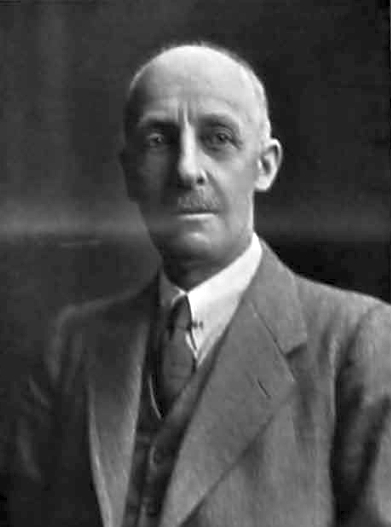Gilbert Walker (physicist)
Contributors to Wikimedia projects
 Article Images
Article Images
Sir Gilbert Thomas Walker, FRS, (14 June 1868 - 4 November 1958) was a British physicist and statistician of the 20th century. He is best known for his groundbreaking description of the Southern Oscillation, a major phenomenon of global climate, and for greatly advancing the study of climate in general.
He was born in Rochdale, Lancashire on 14 June 1868, the fourth of seven children of Thomas Walker and Charlotte Haslehurst. He attended St Paul's School and Trinity College, Cambridge where he was Senior Wrangler in 1889.[1]
Walker was an established applied mathematician at Cambridge University when he become director-general of observatories in India in 1904. While there, he studied the characteristics of the Indian Ocean monsoon, the failure of whose rains had brought severe famine to the country in 1899. Analyzing vast amounts of weather data from India and lands beyond, over the next fifteen years he published the first descriptions of the great seesaw oscillation of atmospheric pressure between the Indian and Pacific Ocean, and its correlation to temperature and rainfall patterns across much of the Earth's tropical regions, including India.
Walker continued his studies of yearly weather and climate change after his retirement from India (in 1924) and acceptance of a professorship in meteorology at Imperial College London. He had only mixed success in his original goal, the prediction of monsoonal failures; however, his theories and broad body of supporting research represented an invaluable step forward, allowing his successors in climate study to move beyond local observation and forecasting toward comprehensive models of climate worldwide.
References
- ^ "Walker, Gilbert Thomas (WLKR885GT)". A Cambridge Alumni Database. University of Cambridge.
External links
- The Walker Institute
- Weather Facts: Sir Gilbert Walker - weatheronline.co.uk
- Pen portrait of Sir Gilbert Walker
- Royal Society citation
- R. W. Katz "Sir Gilbert Walker and a Connection Between El Nino and Statistics," Statistical Science, 17, (2002), pp. 97–112. Project Euclid